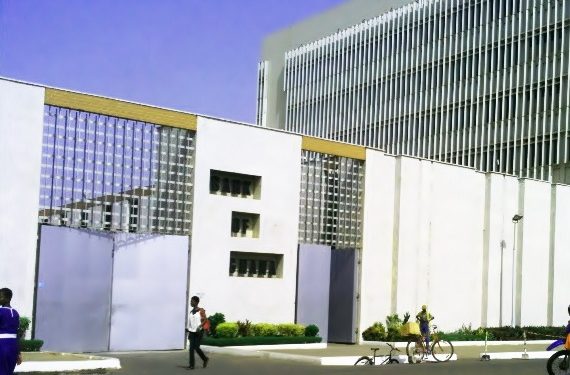Economist Dr. John Kwakye has called on the Bank of Ghana (BoG) to reverse a number of measures it introduced to mitigate impacts of the COVID-19 pandemic on households, businesses and the economy.
This, he said, is needed as a matter of urgency to rein-in the current economic crisis, which has been characterized by widening of spreads on the nation’s bonds, decreasing access to international bond markets, growing disinvestments from local financial markets, as well as added pressure on the local currency.
In March 2020, following advent of the pandemic, the apex bank introduced among other things a reduction in the policy rate by 150 basis points from 16 percent to 14.5 percent – ostensibly to induce lower lending rates for business and consumer loans. It also reduced the primary reserve requirement of banks from 10 percent to 8 percent, a move aimed at freeing locked-up liquidity for banks to support the economy.
But speaking ahead of the ‘emergency’ March sitting of the Bank’s Monetary Policy Committee (MPC), Dr. Kwakye – who doubles as the Director of Research policy think-tank, Institute of Economic Affairs (IEA) – said it is expedient that the BoG reverses some of these measures in light of the current macroeconomic climate, especially when taking global geopolitical developments into consideration.
“The Ghanaian economy is facing a serious crisis brought on to a large extent by COVID-19 and recent geopolitical developments… I suggest the following for consideration by the Bank of Ghana: increase the policy rate by 200 basis points from 14.5 percent to 16.5 percent to stem inflation,” he said in light of inflation figures for February, which accelerated to 15.7 percent – the highest in more than five years.
Dr. Kwakye added that the move will increase the attractiveness of cedi-denominated assets, and consequently stem disinvestments from the money and capital markets, as well as reduce the negative effect on the cedi.
The economist, whose career spans time with the International Monetary Fund and being a one-time member of the MPC for a decade, also urged the BoG to return the primary reserve requirement to 10 percent from 8 percent, “to help curb liquidity creation by banks, which could fuel both inflation and exchange rate depreciation”.
With particular emphasis on measures to increase foreign reserves and strengthen the local currency, he echoed a long-standing request by commercial banks for the BoG to change the current foreign currency-cedi primary reserve requirement to ‘foreign currency-foreign currency’ requirement. This, it has been argued, will help boost foreign currency reserves at the central bank.
Other measures he proposed in this regard include the strict enforcement of foreign exchange laws.
Calling for enhanced collaboration between the monetary and fiscal authorities, he remarked: “It is important that government and the Bank of Ghana collectively take these measures to restore investor confidence and gain needed policy credibility”.







